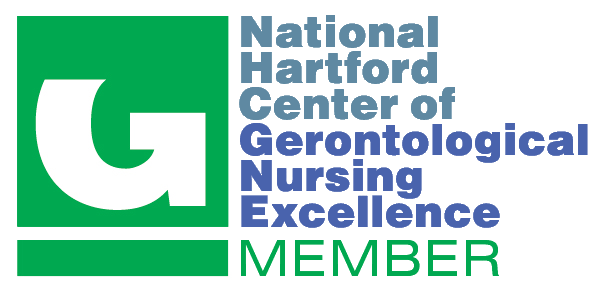Pediatric Nurse Practitioner - Acute Care
Frequently Asked Questions
- What is the role of the Pediatric Nurse Practitioner – Acute Care?
- Do I have to be a nurse to enter the specialty?
- How many students are accepted into this specialty each year?
- Do I need RN work experience?
- Does the school accept transfer credit?
- I have an MSN degree, does the school have a post-master’s option?
- Can I work full-time and be a full-time student?
- Can I take this specialty via the modified distance learning format?
- What is the modified distance learning format?
- Can I take this specialty part-time?
- What housing options are there for students participating in the modified distance format?
- What is the specialty portion of the curriculum like?
- How many times do I need to visit campus?
- What are the clinical requirements for the specialty?
- How do you match me with clinical preceptors?
- Is travel required as part of my clinical placements?
- What will my credentials and certifications be?
- What is the VUSN pass rate for the certification exams?
- Will I earn my nursing license?
- Will I be able to get a job upon graduation?
- Can I earn a DNP degree?
What is the role of the Pediatric Nurse Practitioner – Acute Care?
Advanced practice nurses who complete the Pediatric Acute Care Nurse Practitioner (PNP-AC) track are prepared to provide care for chronically ill, acutely ill, and critically ill pediatric patients and their families. Course content and clinical practica prepare students to use clinical judgment and critical thinking to perform advanced physical assessments, develop differential diagnoses, and a comprehensive plan of care. Pediatric acute care nurse practitioners often participate in multi-disciplinary patient rounds and engage in collaborative practice. Practice settings include inpatient pediatrics, emergency departments, pediatric critical care areas and select sub-specialty clinics. Graduates are eligible for national certification by exam through the Pediatric Nursing Certification Board (PNCB). All nursing practices, including prescriptive practice, are regulated by state laws. Therefore, licensing and scope of practice are determined by individual state boards of nursing. Credentialing and privileging are determined by your individual role within your specific place of employment.
Do I have to be a nurse to enter the specialty?
Yes. You must have a BSN or MSN degree. All students, regardless of entry type, graduate with an MSN or post-master’s certificate.
How many students are accepted into this specialty each year?
We encourage you to apply to the specialty that meets your career interest rather than focus on the number of spaces available. We strongly recommended that you complete your application by the October 15th early action date to have a greater probability of being admitted. The number of students offered admission can vary each year based on many factors. Typically, we admit from 15 to 20 students into this specialty each year.
Do I need RN work experience?
Yes. You must have at least two years of nursing experience in acute, inpatient pediatrics or one year in a pediatric critical care or emergency department setting.
Does the school accept transfer credit?
Matriculated students can transfer up to six semester credits of equivalent graduate level coursework from another accredited university to be applied toward the MSN. You must complete this petition and return, along with the course syllabus, to Sara Donahoe. Courses completed elsewhere must have been taken within the last five years. The decision is based on equivalent content (for required courses), credit allotment, and satisfactory completion of the courses.
I have an MSN degree, does the school have a post-master’s option?
If you already have an MSN and are a certified Pediatric Primary Care Nurse Practitioner, you can pursue a post-master’s certificate in the Pediatric Nurse Practitioner - Acute Care specialty. You can complete the specialty in two part-time semesters. The specialty curriculum is delivered in a modified distance learning format during the spring and summer semesters. Clinical practicums may be completed at the Monroe Carell, Jr. Children’s Hospital at Vanderbilt or arranged in or near your home town, whenever possible. Students holding an MSN in a specialty other than pediatrics may earn a post master’s certificate in the Pediatric Nurse Practitioner - Acute Care track in three semesters of part-time study, beginning in the fall semester.
Can I work full-time and go to school full-time?
We strongly recommend that students do not attempt full-time school and full-time work. The few students who have successfully completed full-time school and work used flex time or accrued compensatory time to continue to work full-time. Some have used a Baylor plan (weekend shifts).
Can I take this specialty via the modified distance learning format?
Yes. This specialty is only offered via the modified distance learning format, so you do not need to give up employment or relocate to Nashville.
What is the modified distance learning format?
Modified distance learning specifically means that you will do a portion of your course work online via taped lectures and web conferencing to integrate the material. A portion of your work requires on-campus learning in blocks of time (including weekends), followed by seminar and online discussions. Where possible, you can do your clinical practicum experience in your home area. You will be in continuous contact with your professors throughout the specialty and in between sessions.
Can I take this specialty part-time?
Yes, however you are required to follow a pre-determined program of studies. Our part-time options include a two-year program of study for the master’s level courses and a three-year program of study (for Vanderbilt Medical Center employees only). If you are an ASN to RN student, with an ASN or hospital diploma, you will need to first complete two, part-time semesters of RN courses, before proceeding to the Pediatric Nurse Practitioner Acute Care courses. ( part-time curriculum plans )
What housing options are there for students participating in the modified distance format?
Our Admissions Office has a listing of hotels nearby the VUSN campus and many students choose to share hotel rooms to lower costs. Some students stay with local classmates.
What is the specialty portion of the curriculum like?
All full time Acute Care Pediatric Nurse Practitioner students attend ‘block classes’ on the Vanderbilt School of Nursing campus eight times over a one-year period. These monthly block classes last from 4-5 days each, except during the months of December, March, June and July. Students must also attend a three day orientation during August. Block dates are determined early for the entire academic year allowing students plenty of time for adequate work/travel planning. Faculty work closely with students throughout the entire program and are in continuous contact with students between block classes.
How many times do I need to visit campus?
There are four blocks in the fall, three in spring and one in summer semester.
What are the clinical requirements for this specialty?
There are 700 clinical hours required for BSN to MSN students. Primary care PNP’s who are returning for a post master’s certificate in pediatric acute care are required to complete 500 clinical hours in the specialty.
How do you match me with clinical preceptors?
The key to a student’s success in the distance format is a clinical placement with a qualified preceptor who is supporting and willing to mentor the student. We view clinical placements as a required and integral part of your education. Faculty work diligently to match you with appropriate preceptors so you can learn from clinical mentors and start applying your new skills and knowledge. We make every reasonable effort to accommodate a student’s placement request. Your specialty director will provide more information to assist you.
Is travel required as part of my clinical placements?
Travel is often a requirement of the specialty, as we strive to give the student a vast array of clinical experiences to enrich the student experience. (block schedule).
What will my credentials and certifications be?
Graduation with a MSN or post-master’s certificate in this specialty prepares you to take the national certification exam, offered by the Pediatric Nursing Certification Board. Passage of the exam is required to obtain a license as an advanced practice nurse.
What is the VUSN student pass rate on the certification exams?
Upon completion of the program, students are well prepared for the certification exams. VUSN students typically score well above national averages on these exams. More Info >
Will I earn my nursing license?
If you enter without a nursing degree, you will take the NCLEX to obtain your Tennessee RN license after your first year of study
Will I be able to get a job upon graduation?
We first developed the Pediatric Nurse Practitioner Acute Care to meet the growing demand for chronic, acute and critical care needs among our nation’s children (ages 21 and under). You will be prepared to provide care in a variety of pediatric acute care environments including pediatric hospitalist services, pediatric intensive care units, pediatric cardiac care units, pediatric emergency departments and select specialty services.
Can I earn a DNP degree?
Yes! Our both the MSN and Post-master’s certificate programs are designed for you to seamlessly transition to our DNP program. After successful completion of one semester of the specialty year curriculum, you complete an abbreviated application to indicate your interest in progressing to the DNP program; no additional application fee is required. Either you can progress directly into the DNP program or you can take a gap year to work as an APRN before starting the DNP program. The advantage of earning the MSN degree before the DNP degree is that you will be able to work as an APRN during your DNP program. The DNP program is designed for APRNs who are working full or part time. See DNP program details.




